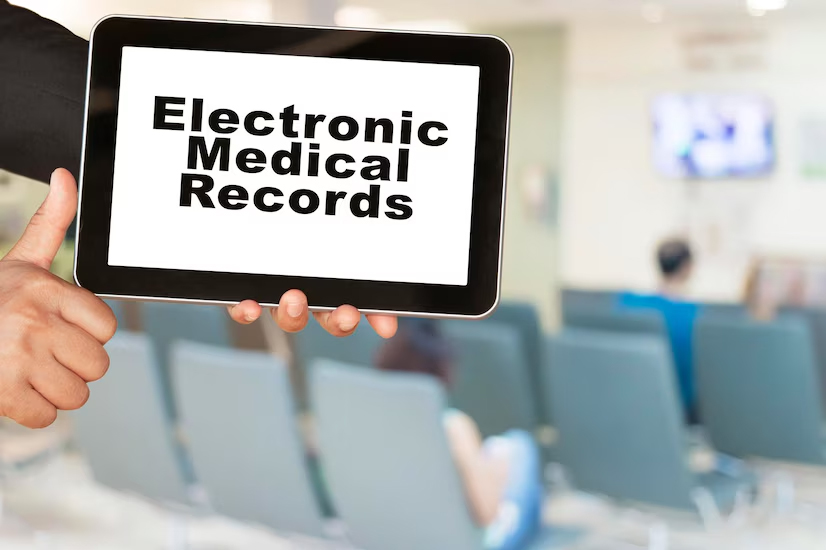
The healthcare industry is undergoing a seismic shift, driven by technological innovation. One of the most impactful advancements in this sector is the adoption of Electronic Medical Records (EMR). EMRs are transforming patient care, improving operational efficiency, and fostering better health outcomes.
Table of Content:-
To understand EMR in detail and its benefits for patient care, OnlyMyHealth team interacted with Chaitanya Raju, Executive Director and Chief Product Officer, Healthplix.
Enhanced Patient Outcomes
EMRs have revolutionised the way patient information is managed, significantly improving health outcomes. By digitising medical records, EMRs allow healthcare providers to access comprehensive patient histories quickly, minimising delays in diagnosis and treatment. Advanced Clinical Decision Support tools within EMRs help doctors assess high-risk patients, streamline data management, and optimise treatment planning. This efficiency enables timely interventions and tailored care. According to Chaitanya Raju, “AI-enabled EMRs elevate patient care by providing real-time insights, improving diagnostic accuracy, and enhancing patient engagement.”
Optimising Doctors’ Time and Expanding Their Reach
In India, with just seven doctors per 10,000 people, maximising doctors’ efficiency is critical. EMRs reduce administrative burdens by automating routine tasks like generating prescriptions. Generative AI-powered EMRs summarise doctor-patient interactions, saving valuable time. “These solutions help doctors streamline clinic operations and manage their patient load effectively,” says Raju. “They can deliver higher-quality care while seeing more patients each day.”
Also read: Common Patient Safety Measures To Take Pre And Post-Surgery
Improved Compliance and Regulatory Efficiency
Regulatory compliance can be a daunting task, but EMRs simplify the process. For example, the Indian Medical Council mandates retaining patient records for three years—a process fraught with risks when done manually. EMRs ensure secure, easily accessible, and well-organised records. They also enable adherence to National Health Authority prescription regulations, reducing errors and improving operational efficiency.
Improved Patient Engagement
Patient engagement is central to better health outcomes, and EMRs play a pivotal role in this regard. Automated workflows within EMRs send reminders for follow-ups and tests, encouraging patients to adhere to treatment plans. Additionally, AI-driven features offer personalised health guidance and risk assessments, fostering proactive healthcare management. “Timely patient engagement ensures better adherence and accountability,” observes Raju, “leading to improved overall health outcomes.”
Enhancing Patient Safety
Patient safety is a core benefit of EMRs. With features like Drug-to-Drug Interaction alerts, EMRs help avoid medication errors and ensure adherence to best practices. This reduces oversight risks, enhances the quality of care, and supports continuous reassessment of treatments.

Also read: New Digital Health Program Reduces Depression Risk in Rural India, Study Shows
Regional Language Prescriptions for Accessibility
India’s linguistic diversity can pose communication challenges in healthcare. EMRs address this by generating prescriptions in patients’ preferred languages, boosting comprehension and trust. Patients are more likely to adhere to treatment plans when instructions are provided in a language they understand.
Streamlining Referrals and Mitigating Risks
EMRs streamline referral management, ensuring seamless information transfer when connecting patients with specialists. This guarantees timely and accurate care. Additionally, meticulous documentation provided by EMRs helps mitigate medical malpractice risks, offering robust legal defence and ensuring compliance with medical standards.

Fostering Research and Education
EMRs also contribute to medical research and education by offering insights into disease trends, treatment outcomes, and patient histories. Integration with generative AI empowers doctors with concise summaries of the latest research, supporting continuous learning and innovation.
Driving the Future of Healthcare
The adoption of EMRs is more than a technological upgrade—it’s a commitment to better healthcare delivery. “The healthcare industry is undergoing a remarkable transformation,” notes Raju. “EMRs are central to this evolution, leveraging AI to optimise workflows, enhance patient care, and support innovation.”
As healthcare becomes increasingly complex, EMRs are paving the way for a more efficient, patient-centric approach. Their integration into clinical practice not only addresses current challenges but also sets a foundation for future advancements in patient care. Embracing EMRs is essential for healthcare providers aiming to lead in a rapidly evolving industry.
Also watch this video
How we keep this article up to date:
We work with experts and keep a close eye on the latest in health and wellness. Whenever there is a new research or helpful information, we update our articles with accurate and useful advice.
Current Version
